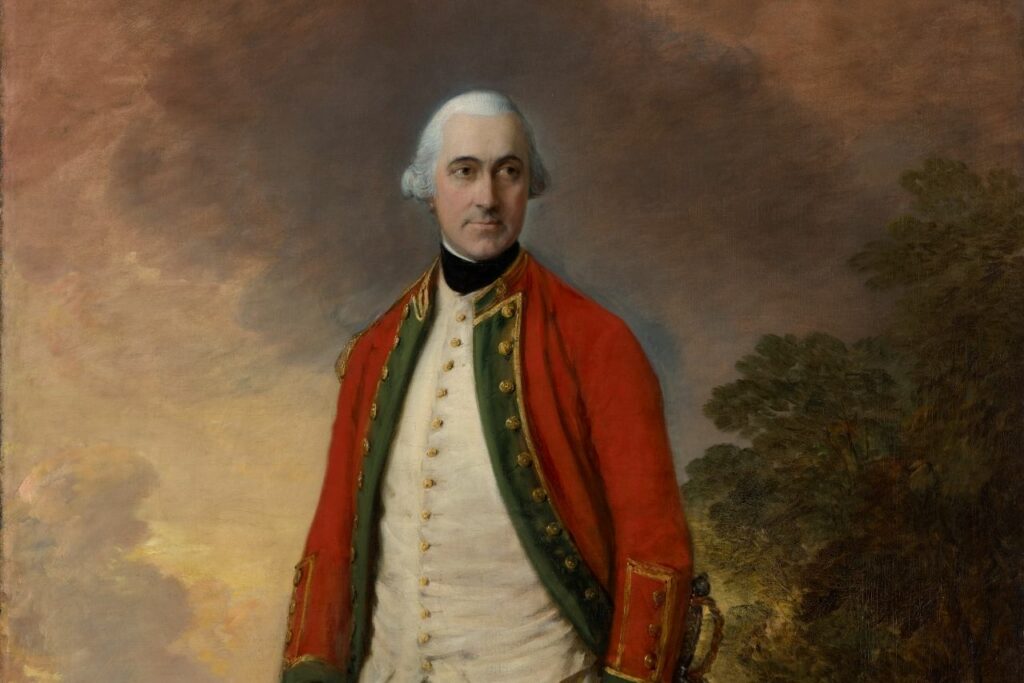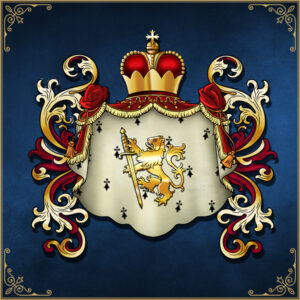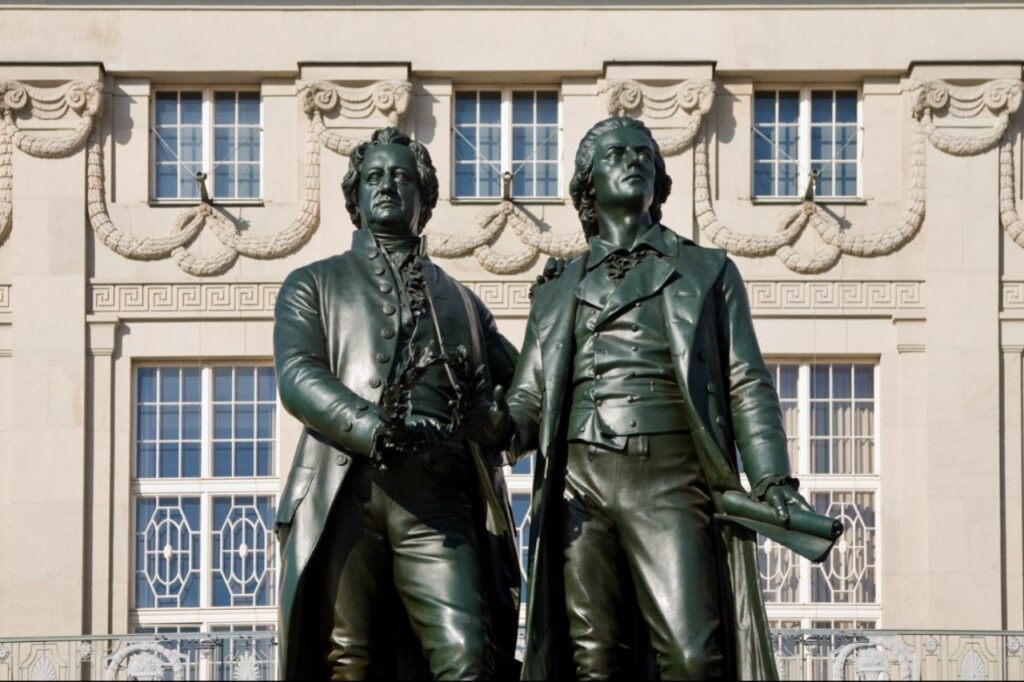The law of nobility looks back on a long history. Already for more than 1500 years the nobility right is sometimes more sometimes less pronounced. However, the development of the last centuries was declining - the strong social changes in the 18th and 19th century provide for a loss of importance of the nobility and thus also the nobility law. Nevertheless, there are still legal regulations and special rights for members of the nobility today. It is therefore worthwhile to take a look at the history of the law of nobility, the law of names and the differences in obtaining and using the name suffix.
The current law of nobility - past and present

The law of nobility looks back on a long history. Already for more than 1500 years the nobility right is sometimes more sometimes less pronounced. However, the development of the last centuries was declining - the strong social changes in the 18th and 19th century provide for a loss of importance of the nobility and thus also the nobility law. Nevertheless, there are still legal regulations and special rights for members of the nobility today. It is therefore worthwhile to take a look at the history of the law of nobility, the law of names and the differences in obtaining and using the name suffix.
The history of the law of nobility

The origins of the law of nobility lie in the 6th century AD. At that time, the Frankish king Clovis the First created the so-called Lex Salica. As Germanic tribal law, the law henceforth applied to all members of the nobility on German soil. The Lex Salica was part of public law. On the one hand, legal regulations existed for all citizens, while at the same time certain exceptions were developed for the nobility. Thus, for the first time, a legal demarcation of the nobility from the bourgeoisie took place. In addition there were regulations for a transition into the nobility. If non-nobles wanted to belong to the nobility from then on, the regulations of the Lex Salica were relevant.
In the later course of history, a division of the nobility into different classes took place. The members of the higher nobility could make use of numerous exemptions. These included a special procedural law, a special family law as well as inheritance law regulations in which the higher nobility was treated differently from the members of the bourgeoisie.
Even after the entry into force of the Civil Code in 1900, the high nobility had a special role, as deviating regulations were laid down in a separate nobility law. A special nobility law thus did not exist exclusively at the beginning of the nobility. In addition a financial betterment of the nobility took place. These remained completely unaffected by the tax and customs duty, so that the duties of the nobles were clearly lower. This further contributed to the financial strengthening of the noble class.
In the 19th century, there was even a separate authority for the nobility and the titles of nobility. The Prussian King Frederick William the IV created this authority in 1855. The aim of this was to improve the care of the members of the nobility. The so-called Heroldsamt promoted the enforcement of the right of nobility. Also the nobility right was subjected to numerous changes in the history. However, what most of the regulations have in common is that nobles were given a better legal status and preferential treatment.
The fall of the monarchy and the new nobility law

The fall of the monarchy was of seminal importance for the nobility and noble law. For the monarchical states were closely intertwined with the nobility. The Salic law of Clovis the First was basically valid until the end of the monarchy and the 1st World War. After 1918 the German imperial constitution came into force. This wrote in art. 109 that all privileges and disadvantages as a result of a privileging of birth or rank are abolished. The legal betterment of the nobility was a thing of the past.
Henceforth, the titles of nobility were merely additions to the name, which were not officially awarded. Thus, the title of nobility became more accessible and transferable. The noble legal entitlement no longer played a role. Today, it is possible for you to buy a title of nobility and henceforth use it as a stage name.
However, after the First World War there was still an examination by the responsible committee for nobility rights whether the nobility titles were correctly led. However, this was a special private law institution, so that it was no longer comparable with the state herald's office. Moreover, the decisions were exclusively binding for the members of the committee.
Nevertheless, the Adelsrechtsausschuss still checks today whether a title of nobility is held in the correct historical manner. Thus, the ARA was created after World War II as a special private law institution, which is why it is no longer comparable to the Prussian Herald's Office. The ARA checks the affiliation to the 'historical nobility' on the basis of the Salic law; however, its decisions are not binding for anyone who is not a member.
What is the difference between noble title, noble predicate and predicate title?

In addition to the title of nobility, the terms nobility predicate and predicate title also appear frequently at present. In this context, the title of nobility denotes the social position of its bearer. Thus, the title of nobility was still important in the Weimar Constitution for determining the respective protocol rank. In this rank system, the emperor was the highest rank, followed by king, duke, prince, baron, count, baron, knight, nobleman and squire as the lowest rank.
Different forms of address were assigned to each of these noble titles. These are called nobility predicate and required, for example, the address of a duke as royal highness, while in the subordinate ranks counts were titled only as highness or barons only as Hochwohlgebohrene. Finally, today one regularly encounters the nobility predicate with names in all social classes. Behind it the name addition hides, which marked once noblemen as such. Here there is above all the 'von' as a designation of origin or the 'zu', which designates a change of residence - for example 'von Weißenfels zu Schwarzfels'. Conceivable, however, is also the combination 'von und zu', with which the nobility made their ancestral seat known for many years.
Nobility predicates in the law of names
Today, the noble predicate is subject only to the rules of the law on names. Therefore, it is also easier to obtain a noble name in different ways.
Here it comes regularly to the acquisition of a nobility predicate by - marital or non-marital - birth as well as by name changes which take place in consequence of a marriage or adoption. Many combinations are conceivable - it is also possible for a woman to acquire the title of nobility as part of her husband's name and to pass it on to a third party in the event of divorce and remarriage. The acquisition of a nobility predicate by the pure request of a name change is regularly not possible, however. This is because such a change is only possible under strict conditions, whereby a psychological burden on the name bearer due to the name must be proven. However, the non-nobility of a name is unlikely to fulfil these criteria in practice.
Differences between noble title, predicate title and noble predicate

When looking at the law of nobility, different terms appear. The title of nobility, predicate title and the predicate of nobility describe a part of the nobility. But are the terms synonyms or are there differences?
The title of nobility basically describes the position of the nobleman in society. It is a precise designation of the social position. Even in the Weimar Constitution, the title of nobility was still significant in determining one's rank. The emperor was at the top of the ranking list, followed by king, duke, prince, baron and so on.
Depending on the title of nobility, a different form of address prevailed. This form of address was called a noble predicate. For example, dukes were addressed as royalty. While the noble title describes the social status, the noble predicate is the respective form of address. The same applies to the predicate title. Even today, the nobility predicate exists in numerous names regardless of the current social class. Especially the additions "von" or "zu" mark the origin of the name in the nobility and represent such a predicate title.
Nobility predicates and the right to a name
Nowadays, the nobility predicate still plays an important role in the legal context. However, there is no longer any specific nobility law. Rather, the nobility predicate is subject to the name law. Thus, it is easier for you to obtain a noble name and subsequently also to wear it.
The acquisition of the nobility predicate is conceivable in different ways. Common are the acquisition of the name addition via birth, name changes, marriage or adoption. However, there are also numerous combinations and individual cases. However, as a rule, you cannot acquire the title of nobility exclusively with an application. This is only permissible under very strict conditions. A mental burden is required, so that the addition of the name must be mandatory for your mental health. Such proof based solely on a non-noble name is arguably difficult. Nevertheless, it is quite possible for you to acquire a noble title and peddle it.
Acquire noble title by marriage, birth and adoption
How do I become a nobleman? What does it mean to belong to the nobility? Basically, a predicate of nobility is not enough to become a noble. The mere predicates "of" and "to" do not determine membership in the nobility and first impression. Rather, a genuine title of nobility is required in order to be elevated to the nobility.
Today, the acquisition of a classical noble title and entry into the nobility is easily possible only for women who acquire the noble title through marriage. However, in case of divorce, the title is lost just as quickly. Moreover, the passing on of the title by the woman to her children or the next husband is not allowed. Only legitimate children are considered nobles and can thus ascend to the nobility. Adoption, however, is another way to truly enter the nobility.
Buy noble title - noble by purchase
Is it possible to buy a title of nobility? Can one really become a true noble through a large fortune? Who wants to enter the nobility and wear a real noble title, can use the ways of marriage or adoption. In some cases, it happens that an adoption takes place due to high purchase sums. A prominent example is Prince Marcus of Anhalt, who had himself adopted and thus received a title of nobility. However the purchase of an adoption represents a large risk. This is basically immoral, so that all agreements made are void.
A sensible alternative is therefore the purchase of a noble title from us. You may use this title like a title of nobility and use it as a kind of stage name. There are no limits to its use - drawing contracts or booking hotel rooms is equally permitted under your new noble title. In addition, you get an authentic certificate of appointment and your own coat of arms - without any risk.










